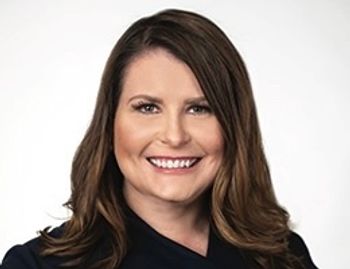
Anti-Vaxxers Thrive on Social Media. Here's How Healthcare Must Respond.
3 physicians discuss enterprise-level strategies to combat digital misinformation.
Measles outbreaks are at a record high across the U.S. At last count, the Centers for Disease Control and Prevention noted 764 cases across 23 states. Nine of those states are experiencing full-blown outbreaks. It’s hard not to connect these statistics back to individuals who choose not to get vaccinated — why, after all, are we suffering outbreaks of a disease that can be prevented?
By allowing users to fan the flames of conspiracy theories, social media networks like Facebook and YouTube have reignited the debate over vaccinations. This widely circulates debunked theories, like the idea that vaccinations can cause autism. While there are no clear data linking social media influence to anti-vaccination beliefs, the
While tech companies are left to grapple with finding solutions, how can medical professionals
Create Counter-Resources to Vaccine Misinformation
Social media aside, the internet allows for a lot of information to be presented unchecked and in misleading ways. Researchers found evidence of about 500 anti-vaccine websites, according to a study published in the
Daniel Salmon, Ph.D., director of the Institute for Vaccine Safety at Johns Hopkins Bloomberg School of Public Health, said what he finds really alarming are websites that appear to belong to legitimate health organizations. He pointed to the
“The AAPS is a fringe group,” Salmon said. “I know the difference. I know what the AAP (American Academy of Pediatrics) and the AAFP (American Academy of Family Physicians) are, and I know it’s not the AAPS. But for many people, that difference isn’t going to be clear. It’s a great example of where there is misinformation that is being propagated that has the appearance of being legitimate.”
While such misinformation will continue to live online, Salmon said he believes one solution is to provide correct information that is easily accessible to the public. The Institute for Vaccine Safety, for instance, addresses many
“We cover 50 different vaccine safety topics, and for each one we have a systematic review, and then we summarize the evidence and draw conclusions whether the vaccine causes the adverse reaction or not” Salmon added. “We’re trying to instead provide accurate and succinct information.”
Have Open Discussions About Vaccines
Some
Sanjay Jain, M.D., director of the Center for Infection and Inflammation Imagining and professor of pediatrics at Johns Hopkins, said healthcare leaders should take these conversations offline. Colleagues do discuss the latest news and as a professor, Jain said it’s important to talk with students about these situations and what to say to patients who bring incorrect information or concerns.
Discussion between doctors and patients is important. Health systems and management teams need to further encourage their staff to be patient and willing to have these conversations. Remind them that most people that come across anti-vaccine information are not hardcore believers. They are likely just skeptical.
A
“People need to understand that there are still some good reasons why vaccines are being given,” Jain said.
Tammy Lundstrom, M.D., J.D., senior vice president and chief medical officer for Trinity Health in Michigan, added that every death that could have been prevented by vaccines is a reminder that these diseases are not benign.
“We need to keep repeating the messages and spend more time explaining the benefit of vaccinations to patients and families,” she said.
Become Advocates for Vaccines
Anti-vaxxer ideas would likely carry less weight if more doctors spoke out against them publicly. Physicians should advocate for what they believe in, Lundstrom said, and health systems should enable doctors to become pro-vaccine thought leaders in the digital age.
“The medical community has a responsibility to raise its voice,” she said. “We have to talk about it and work hard to educate those with anti-vaccination beliefs. Providers can take opportunities with individuals and groups as they arise, but they can also work proactively to raise awareness about the myths and truths of vaccinations.”
At Trinity Health, physicians make local media appearances and participate in health events in the hopes of raising awareness about vaccinations. They also practice what they preach and require influenza vaccinations for all colleagues and providers.
In addition to media appearances, she suggests more health experts and organizations should turn to social media to try and “spread” accurate information.
Looking specifically at Twitter, researchers found pro-vax information is starting to overtake anti-vaccination messages. Notably, some of the most influential accounts including the World Health Organization (
“The goal is to put context to what happens if you don’t [get vaccinated],” Jain said. “That kind of campaigning needs to happen, and advocacy needs to happen at a bigger level.”
Get the best
Dig Deeper






















































































